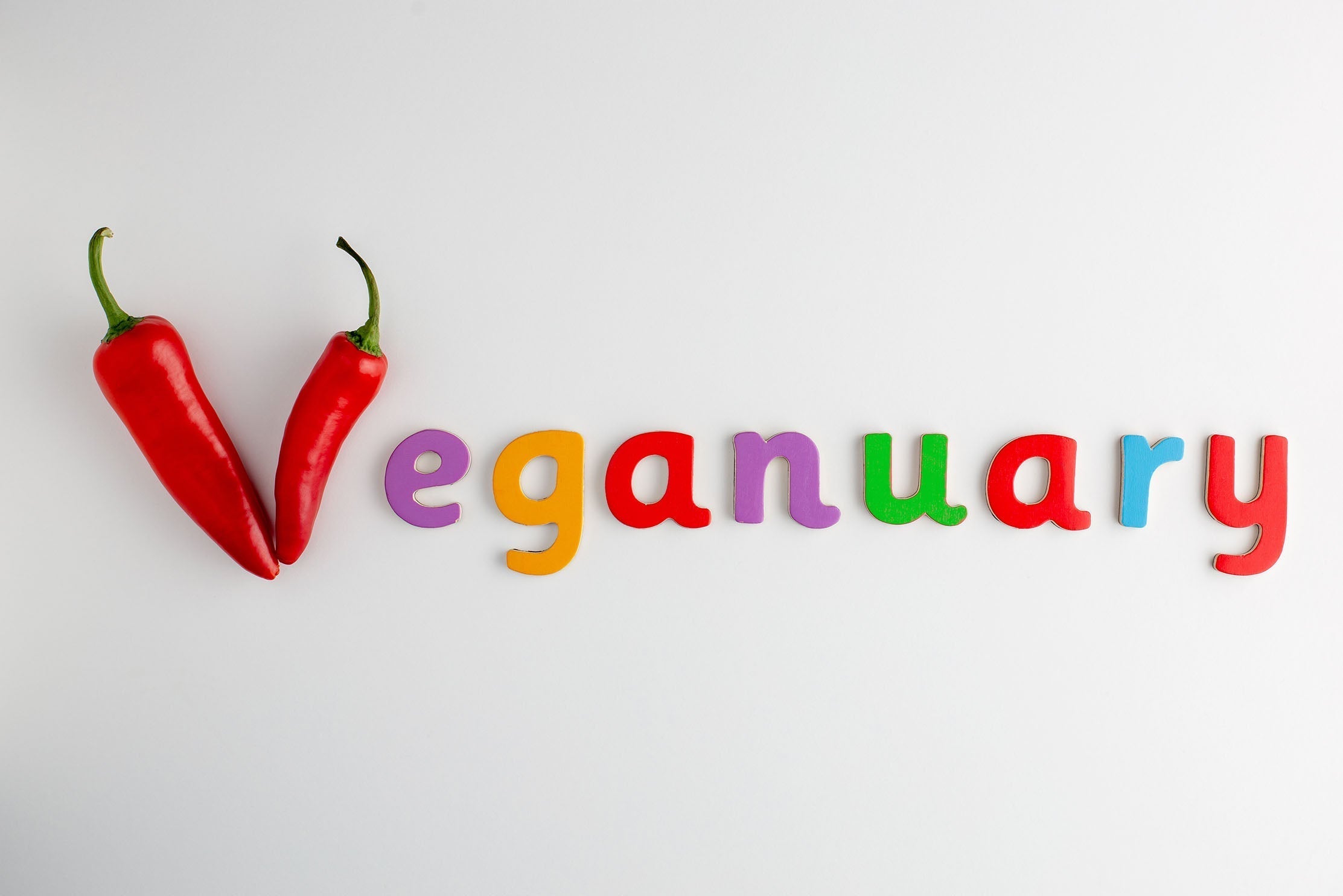With less than a fortnight left before 2021 arrives you've probably started to think about new year’s resolutions. What challenges do you want to set yourself in the new year?
A new exercise routine? An ambitious business goal? To learn a new language? How about changing your diet for one month to improve your health and the health of the planet? If the last option caught your attention then get ready for Veganuary 2021!
What is Veganuary?
Veganuary is an annually run campaign that encourages people to go vegan for January. For 31 days, participants give up meat, dairy, egg, honey, and all other animal products, and replace them with a plant-based diet. The aim is to educate people about the foods they eat and the benefits of a vegan diet.
The campaign began in the UK in 2014. Since then, it's become an international success. More than 400,000 people signed up to Veganuary in 2020, and over 1 million people have participated since 2014.
Why go Vegan for January?
Most people are now aware of the terrible conditions in which livestock are raised in factory farms. But, putting animal rights to one side, you should also consider joining Veganuary 2021 for your health and the health of the environment. Although Veganuary only asks participants to adopt a vegan diet for January, when the campaign ends, many participants do eat less meat than previously and many decide to stick to a vegan every month of the year.
How does a plant-based Vegan diet help your health?
Even though dairy, lean meats, fish, poultry, and eggs are widely believed to be essential parts of a balanced diet, there is overwhelming research that suggests the opposite. A plant-based diet has been proven to prevent and reverse type 2 diabetes as well as minimising the risks of high blood pressure and obesity.
If you're worried that a vegan diet won't fill your energy tank, don't be. Many Olympic athletes have switched to plant-based diets and report higher energy levels, better performance, and quicker recovery since making the change.

How does a plant-based Vegan diet help the environment?
The current animal agriculture industry takes a huge toll on the health of the planet. Global deforestation is a common practice as it clears land for livestock and the production of grain and soy. Of the 270 million tonnes of soy produced each year in the USA, Brazil, and Argentina (the worlds three leading soy producers, 67% is fed to livestock and poultry. Ruminant animals, such as cows and sheep, also produce methane, a greenhouse gas that has approximately 21 times the global warming potential of carbon dioxide. If you're concerned about climate change, one of the best things you can do is join Veganuary and take meat and dairy off your plate.
5 Things That Will Help You Get Ready for Veganuary 2021
Prepare a List of Vegan Recipes
Eating vegan isn't dull. There are tonnes of delicious recipes that are easy to make, and you don't need any special or expensive ingredients. Start browsing for vegan recipes or vegan meal plans and save them to your bookmarks. If you save 31 vegan recipes for dinner and a handful of breakfast and lunch ideas, you’ll be ready for every day of the challenge.
For inspiration, check out our healthy vegan buddha bowl recipe or our filling vegan three bean potato salad recipe.
Get an Insulated Lunch Box
Get ready for life on-the-go. This is often the trickiest because not everywhere will have vegan takeaway foods or snacks. The simplest way to get around this issue is to prepare your lunch or snacks at home and take them with you in an insulated lunch box.
The FLASKE Collection Insulated Food Pot costs just under €30 and keeps your food hot or cold for hours. It's leakproof and just the right size to slip into a day bag. If you know that you're going somewhere that has little or no vegan options, like your work or university canteen, make your lunch at home and take it with you.
Also Read: 5 foods to put in a thermal lunch box

Do a Little Research
A little research goes a long way to stress-free Veganuary. Join local vegan forums or search the Veganuary website, for tips and recommendations. Alternatively, you can use apps like Happy Cow to find out which restaurants and cafes in your area are Vegan-friendly. Peta also lists several vegan-friendly clothing brands or products.
Plus, many popular coffee shops, as well as local cafés now cater to vegans and stock at least one type of plant-based milk. Don't forget to bring an insulated coffee mug if you get your drink to go.
Also Read: 8 vegan drinks to keep you warm this winter

Tell Your Family and Peers
Don't be shy to tell your family and peers that you're going vegan for January. Instead, be proud that you're adopting a new challenge that will help your health and help the environment. It will help you avoid awkward situations when you're invited round for a traditional roast dinner. Plus, telling your friends, family, and co-workers that you're going vegan for January might inspire them to join you. Why not suggest Veganuary to your boss as an eco-friendly office initiative?
Also Read: 6 tips to make your office eco-friendly
Start Early
Don't wait for the 1st of January to organise your Veganuary meal plan and adapt to a new plant-based diet. Giving up animal products cold turkey (pardon the pun), especially if you're used to eating animal products daily, might be too much of a challenge. Instead, try phasing it out, one product every few days, between now and the new year.
How Can I Join Veganuary?
Are you ready for Veganuary 2021? Click here and take the Veganuary pledge!
For more sustainable new year’s resolution ideas, check out our guide to going zero-waste and eco-friendly alternatives to items that pollute the oceans.



